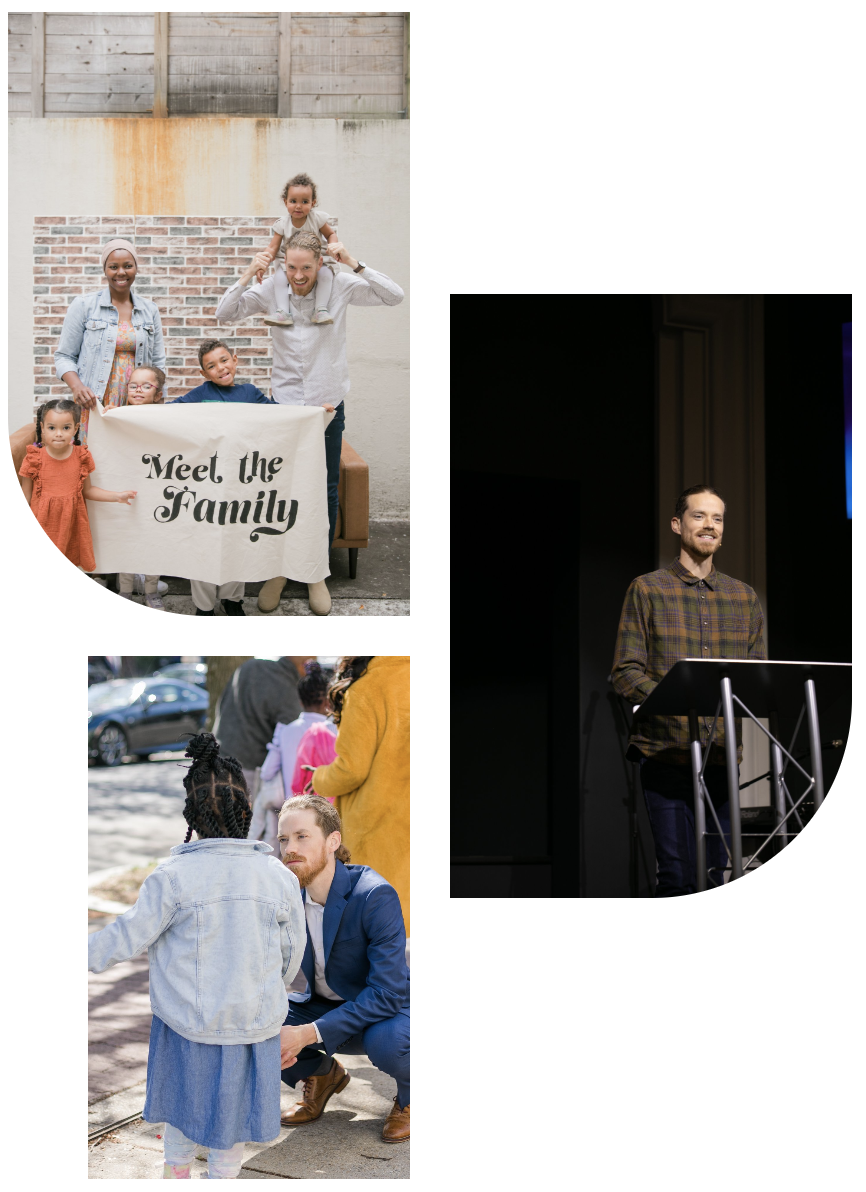-
 Why Church Membership MattersJanuary 26, 2023 • BY Stephen G LawWhy Church Membership MattersWhen I hear the word, “membership,” I immediately think of a Costco membership....
Why Church Membership MattersJanuary 26, 2023 • BY Stephen G LawWhy Church Membership MattersWhen I hear the word, “membership,” I immediately think of a Costco membership.... -
 God's Sustaining PowerJanuary 13, 2022 • BY Stephen G LawGod's Sustaining PowerFirst Service After a year of prayer meetings, vision-casting moment...
God's Sustaining PowerJanuary 13, 2022 • BY Stephen G LawGod's Sustaining PowerFirst Service After a year of prayer meetings, vision-casting moment... -
 Your Titus MomentMarch 25, 2021 • BY Stephen G LawYour Titus MomentSaying "Yes" to the Difficult Thing in Front of You
Your Titus MomentMarch 25, 2021 • BY Stephen G LawYour Titus MomentSaying "Yes" to the Difficult Thing in Front of You
A Reflection on Grace Covenant Church’s Fall Festival
To the casual observer, the Grace Covenant Church’s Fall Festival preparations must have been a strange sight.
Over the past two months, we memorized monologues, created sets, ordered costumes, and combed through complicated logistics to plan a large-scale, multi-day, drive-thru event called “The Real Superhero.”
When you consider the sheer number of hours our staff put in, the 200+ volunteers who served and the thousands of dollars spent, it all seemed a bit absurd. A few days before a very important presidential election, was it really wise to devote so much time, energy and money to children?
One of the last scenes in our production centered around a superhero named Forcefield Girl- having the power to create force fields to stop evil. She resents her name, Forcefield Girl, wishing she was Forcefield Woman. Her mom was always too busy for her and constantly scolded her for the trouble she would cause. Based on how her mom treated her, she sees herself as an annoyance.
She typifies how many children in our society see themselves. Their interactions with adults communicate to them that they are an inconvenience. They are expensive, they slow their parents down, they get in their way, they need to be changed and fed, and they need to be driven everywhere.
As a Christian pastor with four children, I’d like to distance myself from our culture’s tendency to view children negatively. However, if I am honest, examples from interactions with my own children reveal I often have the same way of thinking.
More times than I’d like to admit, I’ve ignored my kids’ gleeful attempts to play with me because I have ‘important’ emails to answer. I often overlook the children in our church lobby and greet only the adults. I’ve harshly scolded my children and then quickly changed my tone to answer a church member’s phone call.
Maybe you can identify with one or two of my confessions?
Jesus’ view of children radically confronts our subconscious mindset that children are somehow inferior to adults. In the middle of Mark’s fast-paced, action-packed gospel there is a short passage that feels like an interruption. Some parents are attempting to bring their children to Jesus.
“And they were bringing children to him that he might touch them, and the disciples rebuked them. But when Jesus saw it, he was indignant and said to them, “Let the children come to me; do not hinder them, for to such belongs the kingdom of God. Truly I say to you, whoever does not receive the kingdom of God like a child shall not enter it.” And he took them in his arms and blessed them, laying his hands on them. (Mark 10:13-16)
Jesus, the Real Superhero, confronts this view that children are an inconvenience in three powerful ways:
1. Jesus doesn’t exclude children but makes room for them to belong.
Like us, the disciples saw children as a burden. Surely Jesus didn’t have time for them.
He had too many teachings to give, demons to cast out and sick people to heal. The disciples’ attempt to exclude the children and to block their access caused Jesus to become indignant (literally, ‘aroused to anger’).
Not only did Jesus have time for the children, he wanted them to experience the kingdom of God. In Jesus’ kingdom the peace, prosperity, protection and fatherhood of God belongs to the children. How can we make room for children to belong, as Jesus did?
As a child, leaders in my church’s children’s ministry made room for me to belong in Jesus’ kingdom. They simply led our Sunday morning children’s class for one hour, once a month. I still remember their names- Chip Moss, Kurt and Beth Greening, Charles and Sharon Williams and Lynn Carter. Twenty-two years later I am still reaping the benefits of their service. They enjoyed seeing me; they made me feel valued.
When we serve children as coaches, teachers, mentors or children’s ministry leaders, we help them belong, as Jesus did.
2. Jesus doesn’t look down on children, but urges adults to become like them.
In Jesus’ day, society did not view children as valuable until they could make a tangible contribution, at least to the family. It was radical that Jesus would allow children to come to him and take his precious time. Yet, Jesus went beyond this when he held children up as examples of what the disciples were to become.
While children’s helplessness was seen as a liability, Jesus explained that it was a prerequisite for entering His kingdom. In the same way that children are completely dependent on their parents, only by acknowledging our dependence on Jesus can we enter God’s kingdom.
3. Jesus doesn’t complain about children but blesses them.
Having included the children and held them up as examples, Jesus then picks them up and blesses them. Jesus had authority to speak the benefits of God’s kingdom into these children’s lives. He saw his time with them as an opportunity to fortify their souls against the forces of evil that would try to destroy them in later life.
As coaches, teachers, parents and godparents, we are given opportunities every day to use our words to either bless or tear down children. We pierce them with our words when we speak out of impatience or frustration. Alternatively, we can bless them with words like ‘I love you’, ‘I’m proud of you’, ‘I believe in you’ or ‘Jesus loves you’. Every interaction with a child is an opportunity to bless them like Jesus did.
In our drive-thru production, Forcefield Girl sees the parents in Mark 10 trying to bring their children to Jesus. Thinking they are an interruption, she tries to stop them with her powers. She is shocked when Jesus, the Real Superhero, tells her to put down her forcefields, and let the children come to him.
The whole encounter leads her to a stunning realization. She ends the scene with the exclamation, “Maybe I’m not an inconvenience!”
No, Forcefield Girl, you’re not. Neither are all the children in our lives. The countless hours, hundreds of volunteers, and thousands of dollars it took to touch so many children’s lives were just a small way to prove it!
Tags: children, fall festival, the real superhero
Related Posts


